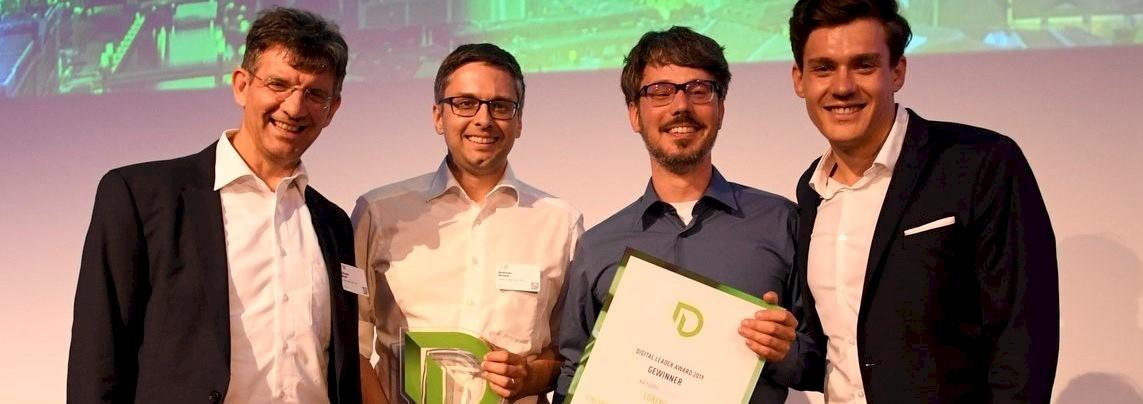17.01.2019
Ressource-efficient Production: Environment Minister visits Lorenz
Environment Minister Franz Untersteller pays tribute to Lorenz for its unique circular economy concept with a personal visit to the plant in Schelklingen. Already in 2016, Lorenz was awarded as one of "100 companies for resource efficiency".
Consistent environment protection and IIoT go hand in hand at Lorenz. This is why the company is not only awarded among the frontrunners of digitization, but also as one of "100 places for resource efficiency" - and almost unique with this combination. The Environment Ministry and leading industry associations awarded Lorenz already in 2016 for a far-reaching remanufacturing concept that significantly reduces the use of materials and environmental impacts and maintains the competitiveness of high-quality materials.
In order to gain an impression of the industry-wide unique circular economy concept, Environment Minister Franz Untersteller visits the Lorenz plant in Schelklingen on January 17. The family business takes back the meters replaced by the metering services and water suppliers. These are disassembled in the factory and reprocessed in specially developed machines in order to return the individual parts to the production cycle as far as possible.
Circular economy benefits not only nature, but above all the customer. Not despite, but precisely because of the high-quality materials, an economic advantage is achieved. The products are not only a clear winner in terms of total costs, but due to their recyclability they remain superior to plastic alternatives even in pure unit price comparisons, as such products can only be disposed of (subject to charges) once they have been installed. Active environmental protection and sustainable management is a central aspect of Lorenz's success story: Resource efficiency and environmental protection thus become a competitive edge for quality products Made in Germany.
Moreover, Lorenz also attaches great importance to environmental concerns in all other areas. The entire company is heated CO2-neutrally by the exhaust heat of a biogas plant. In the supply chain, the greatest possible geographical proximity and similar values are given high priority.









